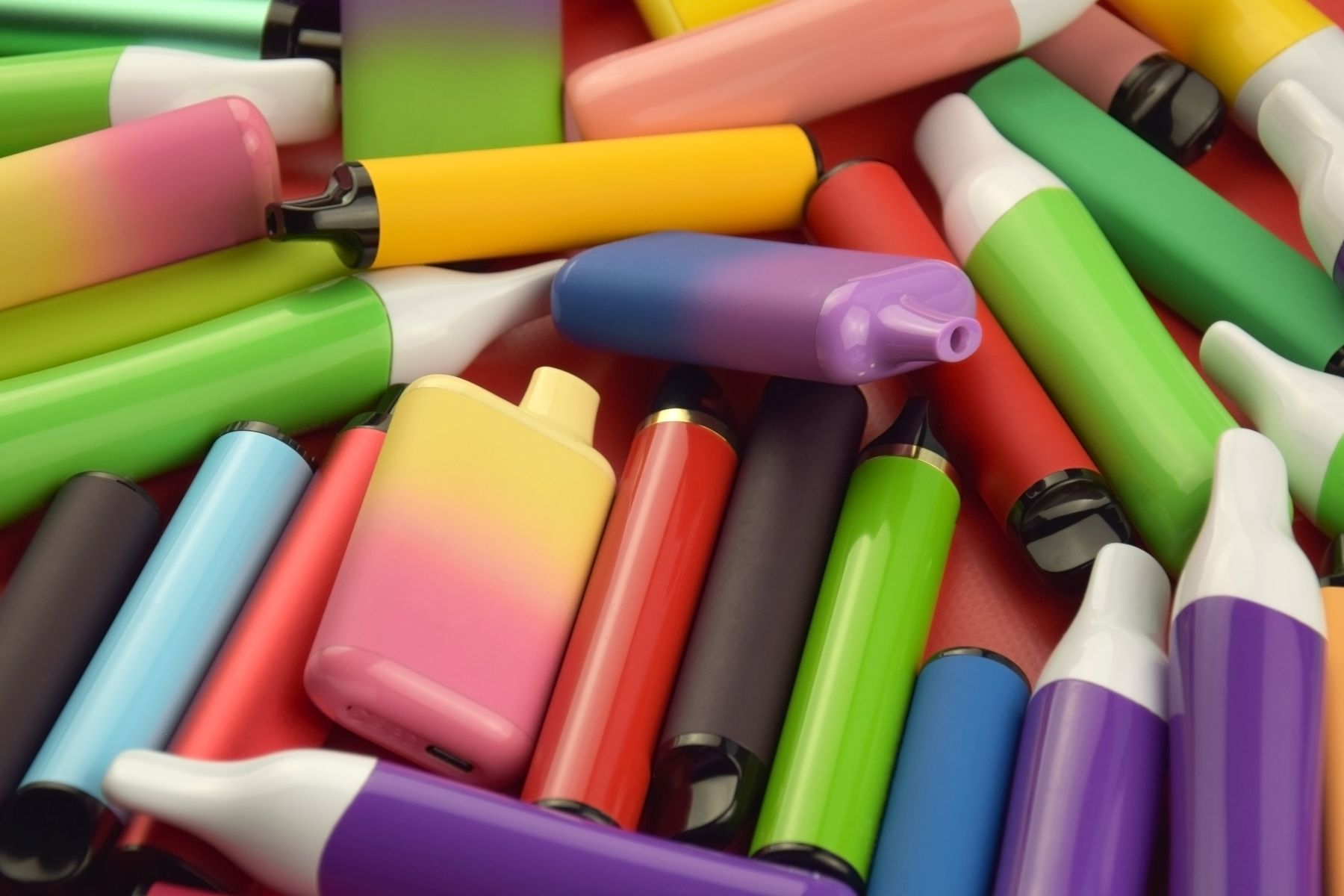Single-Use Ban, Category 15, Fire Risks and Disposal Guidance
The ban on single-use (disposable) vapes came into force on 1 June 2025, marking a major step in tackling both public health concerns and the environmental impact of disposable vapes. Alongside this, summer 2025 also saw the introduction of a new WEEE category for vapes and e-cigarettes, recognising the fast-growing product stream (used by an estimated 5.6 million people in the UK in 2024) and the need for clear, safe end-of-life routes.
This article explains the implications of the ban, outlines the new Category 15 classification within WEEE, highlights the fire risks vapes pose for the waste sector, and provides guidance on safe and responsible disposal.
What is Category 15?
Effective from 12 August 2025, Category 15: “Vapes and e-cigarettes” was introduced as part of an amendment to the UK WEEE Regulations. Vapes were originally categorised under Toys, Leisure and Sport in category 7, and these were then moved out to 7.1 which has been classified for reporting purposes as category 15. This new category includes:
- Rechargeable vaping devices
- Vape pods and cartridges
- Disposable e-cigarettes
- Related charging equipment
The change closes a long-standing regulatory gap that also allowed electrical products sold through online marketplaces from overseas sellers to be exempt from recycling obligations. Those now in scope as OMPs and Vape producers must register and report quantities placed on the UK market and fund appropriate recycling through their compliance scheme.
Compliance requirements
- Immediate data capture: From 12 August 2025, all vapes placed on the market must be recorded under Category 15.
- Quarterly reporting: Producers and importers must report placed-on-market data through their approved compliance scheme in the updated format.
Outcomes from the single-use vape ban
Since 1 June 2025, it has been illegal to sell or supply single-use vapes (with or without nicotine) in Great Britain. Only rechargeable and refillable devices with replaceable coils or pods are permitted.
Retailers were required to arrange recycling or take-back for any remaining disposable stock.
Challenges observed
- Design workarounds: Some manufacturers have produced devices with non-functional “charging ports” designed to appear compliant, creating confusion and enforcement challenges.
- Consumer behaviour: Limited availability of refills has led some consumers to treat reusables as disposables.
- Packaging confusion: Reusable and banned disposable products often share near-identical packaging, creating uncertainty at point of sale.
The direction of travel is clear, towards more sustainable vape design and accountability, but robust enforcement and accessible take-back options will be essential to achieve meaningful environmental outcomes.
Fire hazards in waste management
Vapes have become a significant fire hazard within the UK waste and recycling sector due to their embedded lithium-ion batteries.
A Freedom of Information request by The Electric Tobacconist revealed that vape-related fire incidents increased from 89 in 2020 to 399 in 2024.
Key risks
- Collections: Hidden vapes in household waste can ignite inside Refuse Collection Vehicles (RCVs).
- Facilities: Material Recovery Facilities (MRFs), transfer stations and energy-from-waste plants face disruption, damage and safety risks from thermal events.
- Health and safety: Rising fire incidents make waste sector roles increasingly hazardous.
- Insurance and liability: Poor segregation and non-compliance can elevate risk exposure, costs and reputational damage.
Lithium-ion cells can ignite when crushed, punctured or compacted, and the lightweight, easily damaged exterior of vape products makes them particularly volatile.
Although retailers were required to recycle leftover disposable stock following the ban, waste processors continued encountering large volumes of discarded vapes for months afterwards. Reports suggest that a backlog of mass disposal contributed to several recent waste-facility fires.
How to dispose of and recycle vapes responsibly
Whether single-use or reusable, vapes must never be placed in general waste or household recycling bins. They are electrical products containing batteries and must be treated via approved WEEE routes.
Good practice for businesses and consumers
- Retailer take-back: Retailers must offer take-back for equivalent products and provide safe interim storage (e.g. fire-resistant containers), clear signage and trained staff.
- Designated drop-off points: Use local WEEE recycling sites as many now accept vapes specifically.
- Find a site: Use the Recycle Your Electricals locator from Material Focus to find nearby recycling points.
- Do not dismantle: Keep used devices intact and store them in a cool, dry place until return.
Effective collection and recycling not only recovers valuable materials but also reduces fire risk, protects workers, and minimises environmental harm across the waste chain.
Proposed legislative changes
The Department of Health and Social Care (DHSC) has launched a new consultation seeking evidence to inform upcoming legislation on tobacco and vaping products. The consultation explores:
- The substances and ingredients used to create flavours in vapes and nicotine products.
- Permitted nicotine levels in nicotine-containing products.
- The size, shape, and technology of vapes, vape-like devices, and tanks.
- A proposal to introduce a new licensing scheme for selling tobacco, vaping, and nicotine products.
- A proposal to introduce a new UK-wide product registration scheme.
You can read more and respond to the consultation here: Tobacco and vapes: evidence to support legislation – Department of Health and Social Care
In summary:
- The vape industry is entering a new era of greater accountability and safer end-of-life management. Producers, retailers and waste operators must now ensure compliance with Category 15 reporting, safe storage, and clear recycling routes to support the goals of the single-use vape ban and protect both people and the planet.
How Clarity can help
As an approved WEEE compliance scheme, Clarity Environmental supports producers in meeting their obligations under the Waste Electrical and Electronic Equipment Regulations, including the new Category 15 for vapes and e-cigarettes.
Our expert team can help you:
- Understand your new reporting requirements under Category 15
- Register and comply through an approved WEEE scheme
- Stay ahead of regulatory changes affecting vape producers and importers
If you need support with vape compliance or WEEE registration, get in touch with our team by simply completing the form below.





